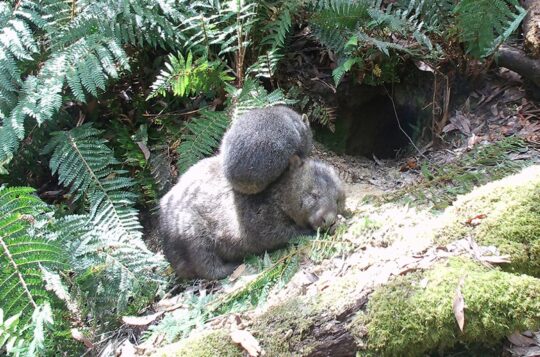
Wombat AI: software deployed to track native animals
Tasmanian devils, eastern quolls, fallow deer and other wild animals are being tracked using artificial intelligence to free up conservationists' time.

Tasmanian devils, eastern quolls, fallow deer and other wild animals are being tracked using artificial intelligence to free up conservationists' time.
Australian researchers say a painting, believed to be at least 51,200 years old, has been found in a cave on the east Indonesian island of Sulawesi.
A glaciologist from subtropical Queensland is about to embark on an epic Arctic trek that combines science, adventure and an obscene amount of butter.
Scientists are surveying remote areas of Antarctica with drones, hoping to protect plants and animals in the fragile ecosystems in the face of climate change.
Tens of millions of red crabs are scurrying to the coast of Christmas Island, in one of the world's most colourful annual mass migrations.
When John Watson lost his finger to a crocodile he treated the pain with traditional medicine from the Kimberley, which his people are working to commercialise.
Findings of a study could help predict which animal species are better positioned to adapt to new environments as climate change impacts global biodiversity.
Government suppression of good science is hampering the fight to address the biodiversity crisis gripping the planet, an Australian expert says.
There are better matches to modern-day wombats than the car-sized Diprotodon, and a skull found in a Queensland cave reveals more about their lives.
Scientists believe K'gari formed between 0.7 and 1.2 million years ago and its formation allowed the development of the southern and central Great Barrier Reef.
A unique type of diamond invisible to the naked eye has been discovered for the first time in Australia within rocks from northern Queensland.
Anne Green is one of several women scientists given the country's highest recognition for her work, which has included a pioneering role in physics.
A hi-tech plan to generate big data sets will help protect Australian wildlife from disasters like the Black Summer bushfires.

Dozens of Australia's most threatened animal species could be saved from extinction with enhanced conservation efforts, a study has found.
Scientists have documented the extraordinary behaviour of a group of magpies after they freed their mates from GPS tracking devices.
 ecosystem
environmental issue
global warming
marine science
natural resources
natural science
renewable energy
science and technology
ecosystem
environmental issue
global warming
marine science
natural resources
natural science
renewable energy
science and technology
Scientists have issued a dire new warning about coral reef losses even if the world manages to limit global warming to 1.5C.
A new study has revealed Tasmanian Devils are fussy about their food, breaking the first rule of what it is to be a scavenger.